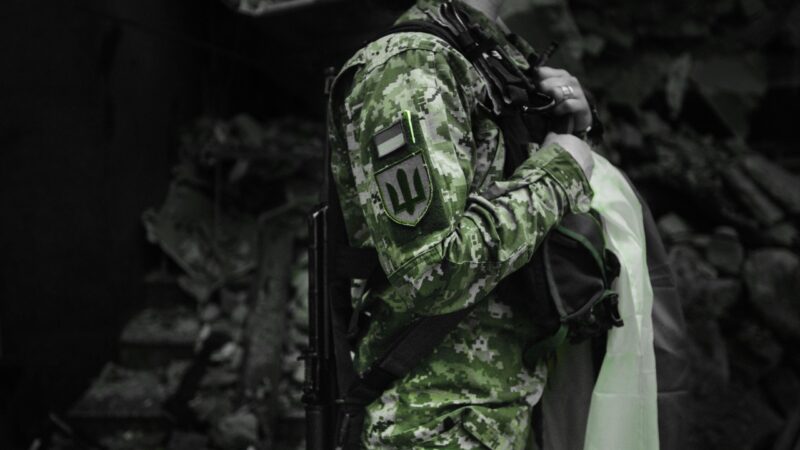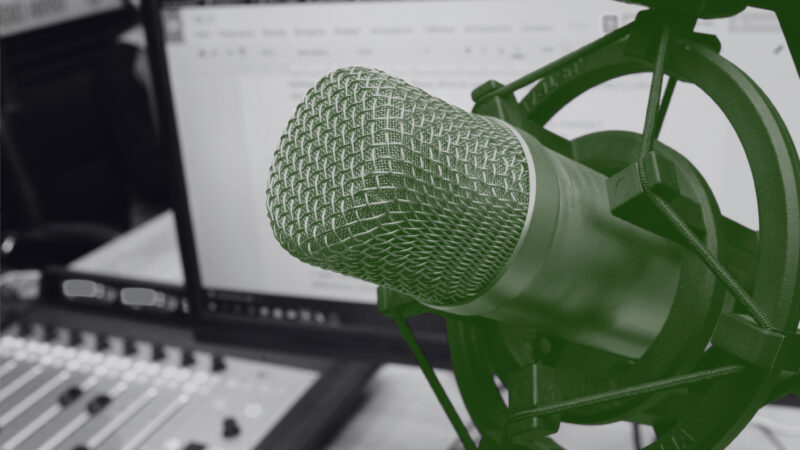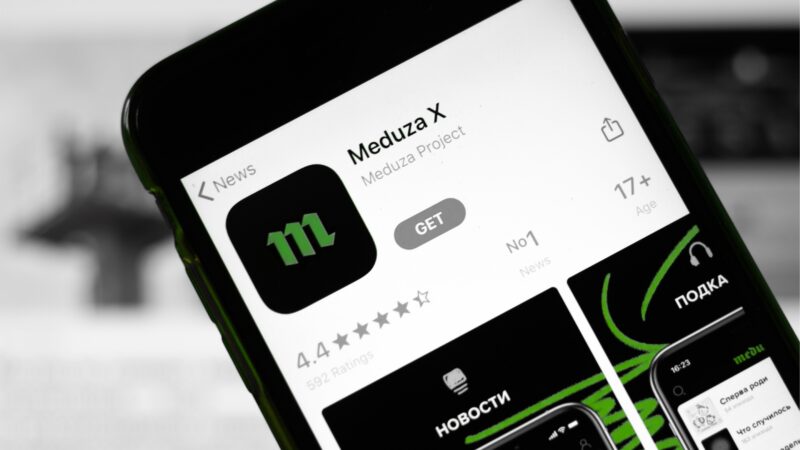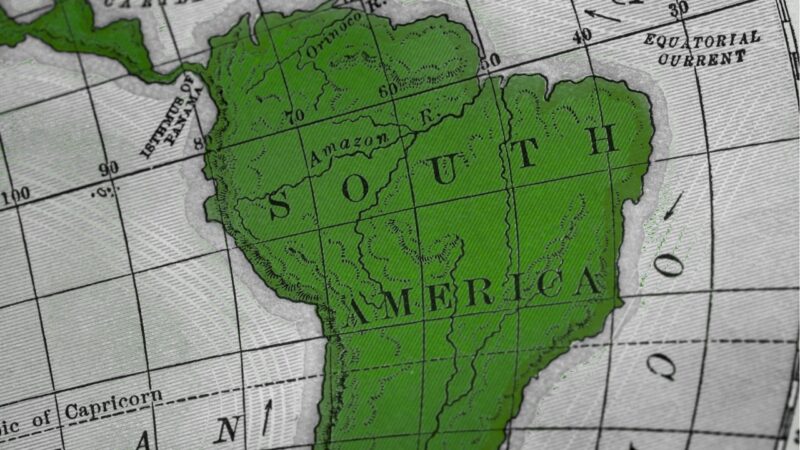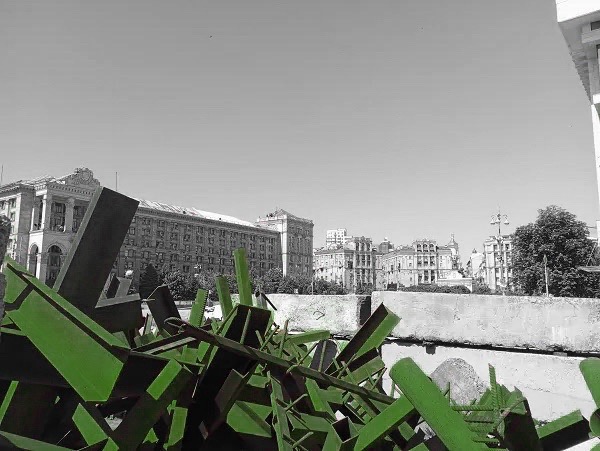Interview with Iryna Tsilyk | Losing intellectuals on the front lines is a disaster for Ukrainian culture today
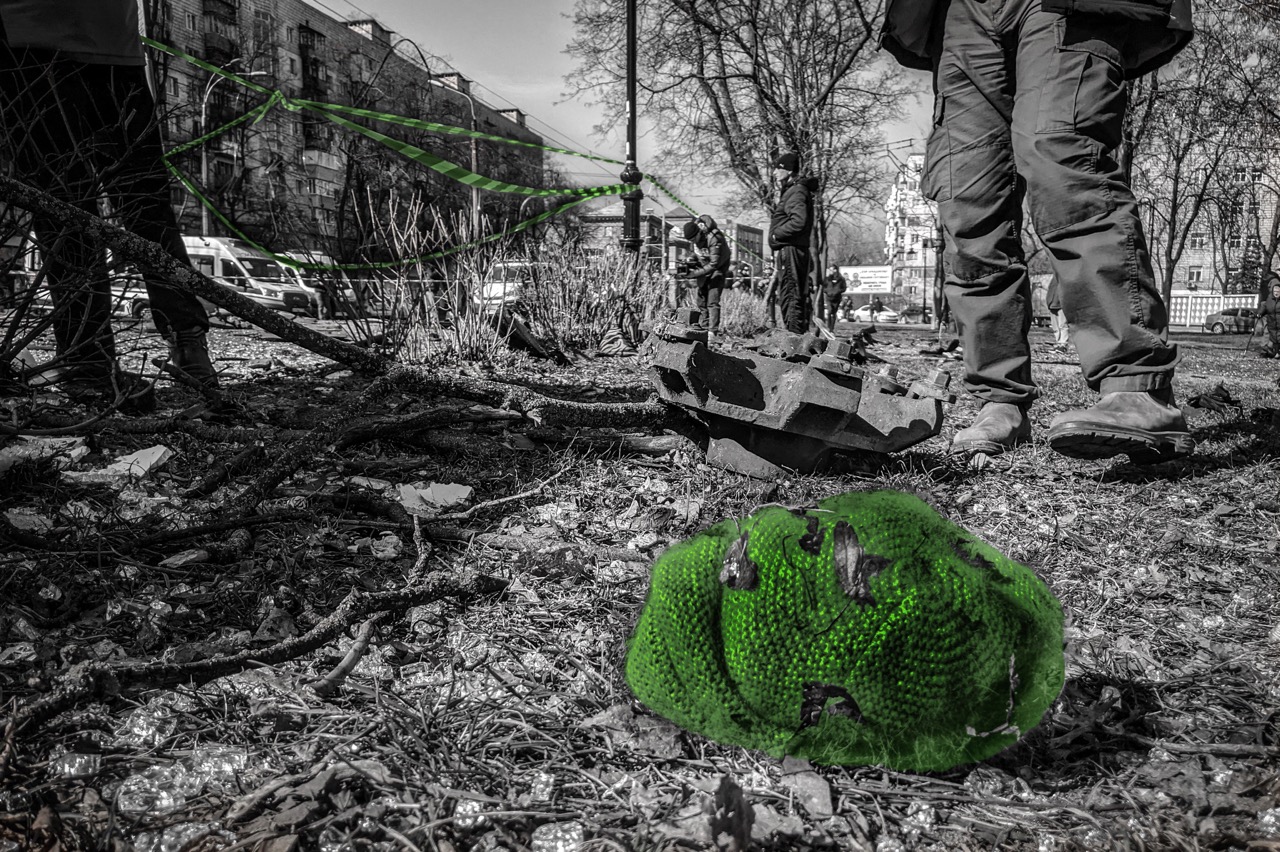
Oleksandr Pankieiev: After Russia’s initial invasion of the Donbas in 2014 you made The Earth Is Blue as an Orange, a documentary film about the life of a family in Donetsk oblast—and also your husband served in Ukraine’s army. How did these experiences affect or help you once the full-scale invasion happened?
Iryna Tsilyk: My husband served in the army for the first time in 2015–16, and then he rejoined the army again when Russia’s escalated invasion began. As for my experience, I have always tried to be involved in different activities in the cultural field over the years of Russia’s war in Ukraine. In the first years of the war, I used various opportunities to go to Donetsk and Luhansk oblasts, including taking part in literary readings. I made documentary films, and I also participated in events and classes for children living in the front-line zone. It was crucial for me to go there, to see everything with my own eyes—to meet people, talk to them, listen to their testimonies, and actually feel what is happening there—because, you know, in the first years of the war Ukraine was also divided into these parallel realities.
The east of Ukraine was under attack, there was a real war, and meanwhile my Kyiv—I’m from Kyiv—was completely peaceful, and many people in other Ukrainian cities also weren’t aware of what it meant to live in a war zone. That is almost the same as what foreigners feel now towards Ukraine. They have deep empathy, but at the same time they can’t imagine what it means to live in the reality of war. So when the full-scale invasion started, many things changed for all of us—for the whole of Ukraine, because suddenly we discovered that the “red zone” was everywhere. And of course, some regions feel much safer compared to southern and eastern Ukraine, but still there is no completely safe city or region in Ukraine.
My experience of being a filmmaker—a person who somehow reflects on everything around me—was useful. But at the same time I suddenly felt numb and speechless, because I had actually comprehended that being just an observer, I had completely another perspective. When you are in the middle of this reality, you suddenly lose all the possible tools you had before to express somehow what is happening and what it means for all of us. So, I somehow stopped filmmaking and used other artistic ways to reflect reality. For example, when time had passed, I started to write many essays and that kind of thing. Poetry is also a very special and powerful tool to reflect our bizzare state of being today. I feel that only now have I come back to myself and through filmmaking am trying again to find the proper way to talk about everything happening to us.
Pankieiev: This leads to my next question. How did the war affect the work of film directors, writers, and people who work in the field of cultural production? Does what is going on now differ entirely from before the full-scale invasion? You described that you, for instance, had to put some of your work on hold.
Tsilyk: The situation changed completely—but most of all in its scale. In the first years of the war, many people from my bubble were already involved in different kinds of activities helping the front, and my husband and some of my friends joined the army back then. But since February 2022 the circle seems to have widened. Almost everyone I know is somehow affected by this war. Most people around me are fighting or waiting for their spouses who are fighting. Some of my female friends have become widows already. One of my friends, who used to be a film editor before the war, joined the army and then was killed at the front line.
Last May, my husband was in a situation where he survived by a miracle. He and his unit were trapped in positions at Bakhmut, and they were under constant fire for five days. He already believed that he wouldn’t survive, but he did. So I’m trying to say that I am an artist, filmmaker, and writer, and most people I know are artists too. So now, many of them have to take up arms and change their lives completely, which is a colossal tragedy. We live in times of so many tragedies, and no one is born to fight. I don’t mean that artists are in a better class—that’s not what I want to say. But the problem is that we are losing so many intellectuals, philosophers, writers, bright minds! You probably know some of these tragic stories—of how, for example, the Russian military killed the Ukrainian writer Volodymyr Vakulenko. His body was found in a mass grave. Another writer, intellectual, and volunteer—Viktoriia Amelina—was just a customer at a cafe when a Russian missile hit it and killed her. And so many have already been killed at the front. So what I’m trying to say is that it’s so painful that most of these people—young people, cool, strong personalities—are not only losing their chance to build a house, to raise a child, but they’re also losing all these chances to create some new senses and narratives. It means that losing intellectuals on the front lines is a disaster for modern Ukrainian culture.
And also there is another problem. Although many are still alive, they can’t be active in their field when they’re on the battlefield. I mean, all these filmmakers and writers can’t make new films or write books, and that is why we also feel that we’re somehow losing the chance to talk for ourselves, with our Ukrainian voices. At the same time, all these Russian intellectuals who fled to European countries have found some support and new opportunities. They’re using all these new chances to talk loudly about themselves, their problems, and their pains, almost without focusing on the necessity to de-imperialize Russia; this is problematic from many angles and for many reasons.
Pankieiev: What about Ukrainian society at large? What changes have you observed in Ukrainian society? It’s a broad question, but it seems like everyone notices different changes. Sometimes they are positive, and sometimes they are negative. What’s your perspective on this?
Tsilyk: Ukraine is such a huge entity, and yet it’s not homogeneous—because historically, various regions of Ukraine were under different influences. And of course, we are still having this journey from A to B, trying to search for our new identity, because we were oppressed for centuries. As I said previously, I want all these metamorphoses to happen faster, because we are losing many bright people. On the one hand, some processes need more time and it’s impossible to quickly change our perspective on ourselves and our future in the context of European society. On the other hand, we sometimes feel frustrated that we lost these [previous thirty] years of independence, in which we should have been much more active in order to change so many things on different levels. We have had to walk this path in fits and starts.
I don’t think that we could have avoided this war. It is such a painful but at the same time important turning point on the way to Ukraine’s true freedom, its democratic future, and everything it can provide for us. For example, I look at myself, a person born in the Soviet time, a girl who in first grade was writing “Glory to the country of soviets!” And you know, I look back to all the metamorphoses I had in my life. I grew up in an entirely Russian-speaking community, in a family that had been affected by the Soviet regime, yet my grandmother didn’t tell me a lot about all these traumas from the past. My great-grandparents were exiled to [the notorious Soviet island-monastery-turned-prison at] Solovki, but when I was a child, I never had a chance to think about this from the angle of a family that has been deeply traumatized. I took this journey only later, in the ’90s when I started to search for my identity and fell in love with the Ukrainian culture and language.
So, I also needed time. Thus, I believe that it would not have been possible to fundamentally change me or Ukrainian society any faster. You know, I look around and sometimes feel exhausted and frustrated, because I often see so many people who are still affected by this Russian propaganda and all those influences. But at the same time we have changed a lot, especially in response to Russia’s open aggression towards Ukraine. I look around and see people that have completely changed their attitude. Nevertheless, Ukrainian society is still very divided. When we have painful moments, we can be aggressive and cruel to each other—and the reasons for that are also clear. We have such a huge collective trauma! I also understand this, and I worry about it. We need to be connected and support each other in order to win this war. But I still try to be optimistic. We should be united in this fight, because I don’t see any other choice. There’s no way back.
Pankieiev: When you say that Ukrainians are cruel to each other, what do you mean?
Tsilyk: I mean that we are not tolerant of mistakes. We are all super-sensitive. We are very wound up. And sometimes, there is a feeling that this aggressiveness is still accumulating inside. And when we cannot punish the true culprit of our troubles, sometimes this aggression gets spilled over onto others—for example, our associates, family, friends, and other Ukrainians. And I’m very afraid of this, because we have to be united. Again, referring back to the history of Ukraine, when sometimes internal discord weakened our positions, I understand how important it is not to quarrel now. Because if we are working for the victory of Ukraine together, then we must not weaken each other. We must avoid crossing red lines among ourselves while we argue, discuss inner problems, and so on.
Pankieiev: Does our society today have any demand for a completely different intellectual and cultural product? What does Ukrainian society want to see now?
Tsilyk: Actually, for the last year and a half I’ve focused more on what demand has been coming from outside. Circumstances have developed so much in that direction that I started writing a lot for foreign media outlets. I am often invited abroad to give talks. Accordingly, I have observed how thirsty different countries and intellectuals from these countries are now for these new Ukrainian narratives—about what Ukraine is, who Ukrainians are, what happened in the past, and what we want from the future. It strikes me how little people know about us—and I also needed to realize this. If there is a demand, I always try willingly, as far as my internal resources allow, to be open to communicating with different audiences. For the last few years I have focused more on this field of cultural diplomacy and on conversations with foreigners.
As for domestic demands, these are also no less important. But I guess what I mean is that it’s hard for me to talk with any objectivity now. We also need to tell ourselves!—not just foreigners—who we are, where we are going, and what happened to us in the past, because we have some new tools to rethink many things, all of which are essential processes. It’s just a pity that now there is the demand, but often there is not enough supply, so to speak. Ukrainian literature, for example, is burgeoning with the same opportunities. I look around and see my colleagues writing, and this is all extremely important. They are writing a lot! They’re trying to apprehend and comprehend these present moments and to think more globally.
This is also happening massively with Ukrainian poetry. I see how some strong poets are creating powerful, explosive things. On the other hand, cinema seems to be almost paralyzed—not entirely, of course. Documentary cinema is still doing well, but I am very sad to realize that there is no money for this now. Nothing like fiction films or animated films is being shot now, because they are very expensive. And I am sorry that we are losing in this field because simultaneously I see Russia allocating billions of rubles for its cinema. It will probably include some quite talented work, and we also understand that it will not only be stupid propaganda. This is big trouble for us, because we can’t compete on an equal footing in this field. Meanwhile, Russia continues to spread its narratives all over the world—and this frustrates me terribly. It’s why we here—I mean different Ukrainian artists—are doing what we can. Of course there are moments when we become apathetic and feel like we’re hitting some walls that can’t be broken through—including a lot of misunderstanding by our foreign colleagues, who often support us but unfortunately still don’t understand so much. Some of them simply cannot give up the usual constructs, the usual views that they have about what Russian culture is, what Ukrainian culture is, and so on. All my colleagues are exhausted from this. But we must continue to work somehow.
Pankieiev: Regarding this “cultural exhaustion,” you have mentioned language as part of identity. But all the characters in your documentary speak Russian. What is your opinion on the issue of language?
Tsilyk: I’ve already said that different processes happen at different speeds. And unfortunately some things don’t speed up, no matter how much we want them to do that. A long time ago—in my life, in search of my own self—I concluded that language is an essential part of my identity because, in my case, it was like a return home, a return to that world to which I had not been invited but invited myself there. I started to speak Ukrainian in adolescence, and I finally switched to Ukrainian many years later, when I became pregnant. It was a crucial turning point for me when I realized that the next generation—in this case, my child—would be Ukrainian-speaking. I had been Russified and didn’t want my son to be. And ultimately it worked: my son has a beautiful, amazing, native, true command of the Ukrainian language.
As for the film The Earth Is Blue as an Orange, of course I didn’t choose the characters for this film based on their language. But there’s an interesting thing… I always spoke to them in Ukrainian, and they spoke the way they were used to speaking. And I felt that Ukrainian was a very exotic language for them, at least for this family. That wasn’t the case for the whole of Donetsk oblast, though; I have been to villages in Donetsk oblast where people do speak Ukrainian. It depends on different circumstances, but this particular family was totally Russian-speaking.
And interestingly, even after the start of the full-scale invasion, I would never have thought that these very people would also go in this direction. But they did. For example, the older daughter has completely switched to Ukrainian. The family tries to have all their communication in public or out in their city—they recently moved to Vilnius—only in Ukrainian, so that people don’t think they are Russians. The mother, Hanna, speaks with me only in Ukrainian now. But you have to understand that they had to work hard for this. I was so surprised, because I hadn’t expected this from them. I never pushed them to do it—–well, except perhaps by my own example. We never discussed this topic, but at the same time they knew that I am generally very sensitive about it and how much I want more people in Ukraine to speak Ukrainian.
This is not just a choice of language—today, it is really a question of our survival as a nation. And so it was a kind of gift for me, too, that these people unexpectedly began to speak in Ukrainian. I mean, everyone achieves this at different speeds…but neither does it mean that we should sit back and do nothing to push Ukraine further along in these processes. Certainly the government and specific agencies should lay the groundwork, encouraging people to move a little faster in this direction. But at the same time, I don’t believe in aggressive methods because, having many years of experience living in Ukraine and observing these processes, I see that the language of aggression does not work well—people go into their shells and take a protest posture. On the other hand, the language of positive examples entails a gentle, tender Ukrainization that is unfortunately too slow. I don’t know the right way to do it, but as a Ukrainian artist, I am trying to do everything I can to facilitate. Let me say that my characters, whom I filmed back in 2018, do not deserve condemnation. I wish they had spoken Ukrainian then, but I’m glad they speak it now.Ukraine’s East is a very controversial region. I’m not justifying what was and is still happening to the people, but for so long this region had been under the russkii mir [Russian World], which has tried to expand its tentacles of total influence. But at the same time, it’s also true that many people there think of themselves as Ukrainians, as part of Ukraine. Not everyone can change the language of communication so easily. But this last year and a half has pushed many people to switch to the Ukrainian language. Many people still do not consider it necessary, but something tells me that Ukrainization and other related processes are already well underway and so powerful. There is no way back from here.
